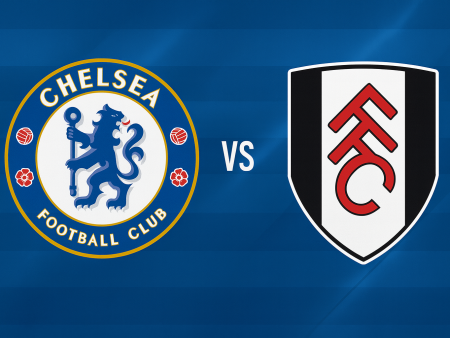Elevating Tactical Awareness: A Player’s Guide to Football Intelligence
Developing tactical intelligence on the football pitch is increasingly vital for players aiming to excel. While technical and physical skills often take center stage in training, the strategic elements of the game are what set top players apart. This guide explores practical strategies for footballers to advance their tactical understanding, bridge gaps in coaching, and take greater ownership of their in-game decision-making.
Why Tactical Understanding Often Gets Overlooked
Traditionally, coaching has concentrated on building technical abilities-such as dribbling, passing, or physical stamina. However, a growing number of players realize that a deep grasp of tactics significantly impacts performance across all “corners” of the game: technical, tactical, physical, and psychological. Yet, many athletes and even coaches struggle to transition from recognizing on-pitch issues to understanding and addressing them on a deeper tactical level. This shortfall can limit player development and team effectiveness.
Learning from Live Examples: The Value of Tactical Adaptation
Consider the common scenario faced by players: repeatedly making the same tactical mistake, such as pressing too aggressively and being bypassed through quick passing combinations. A recurring theme in match analysis is players sticking rigidly to pre-practiced tactical plans without adjusting to match realities. Failure to adapt, as shown in many match breakdowns, often leaves both players and teams exposed.
This highlights the concept that effective pressing, defending, or attacking is not just about effort or basic positioning. It requires reading the game in real-time and adjusting tactics based on the evolving demands of each match. True tactical intelligence is the ability to recognize recurring patterns, adapt accordingly, and avoid predictability-something best developed through a blend of practice and critical reflection.
Practical Steps to Sharpen Tactical Analysis Skills
1. Access and Utilize Match Footage
One of the most valuable tools for self-improvement is video analysis. With widespread access to technology, most matches are filmed-even at youth levels. If your game was recorded, ask for a copy. If not, encourage a teammate, coach, or family member to record your matches or even training sessions.
Reviewing your own game film offers fresh perspectives on your positioning, decision-making, and overall tactical sense. Much like hearing your own voice recorded, watching yourself play can reveal habits and flaws you might not notice otherwise. Analyze clips of specific moments-such as transitions, pressing mistakes, or opportunities missed-to learn and adapt. For individual training sessions, filming your drills can help you spot technical and tactical strengths and weaknesses.
2. Conduct Targeted Research and Study
The internet is a treasure trove for aspiring tacticians. To make use of the unlimited resources available:
- Start by identifying a specific aspect of your game you want to improve.
- Dive deep, researching articles, videos, and expert analysis on that particular issue.
- Brainstorm potential solutions and try them out in practice or games.
- Repeat this feedback loop: Observe, research, implement, and reassess.
Focusing your efforts on personally meaningful areas enhances motivation and leads to tangible improvements. For example, if your defensive positioning gets exposed by quick passes, search for expert advice on defensive shape, pressing angles, or anticipation.
3. Curate and Absorb Quality Content
Don’t just rely on raw match footage. Supplement your learning by following reputable sources-tactical analysts, professional coaches, and seasoned players who share match breakdowns or skill tutorials. Platforms like YouTube and online football publications offer insight into tactical systems, positional play, and training drills.
Some suggested approaches:
- Watch breakdowns of professional matches and analyze how certain players handle the challenges you're facing.
- Explore reputable tactical blogs and football podcasts.
- When learning a specific skill or tactic, look for actionable tips and immediately put them into practice.
Stay selective in your content consumption-prioritize clarity and actionable advice over sheer volume. Regularly reflect on which insights directly improve your game and avoid passive binge-watching.
Mastering the Art of On-Pitch Scanning
Effective footballers are in a continuous state of scanning-observing not just the ball, but also the position and movement of teammates, opponents, and open space. Treat in-game awareness as a real-life version of ‘I Spy.’ Use static moments, like goal kicks or throw-ins, to read the opposition’s shape and anticipate where space may appear or defensive weaknesses might be found.
Keys to developing your scanning habits:
- Check your surroundings before receiving passes, looking for passing lanes and threats.
- On defense, assess your direct opponent’s strengths and weaknesses. Adapt your approach; for instance, use teamwork to neutralize a faster or stronger adversary rather than engaging in physical duels.
- Always prioritize awareness of four core elements: ball, opposition, teammates, and space. The interplay of these factors determines most tactical situations.
Personal Evaluation: Recognizing Strengths & Gaps
To improve, objectively evaluate your own performance in all core areas:
- Tactical: How do you make decisions under pressure? Are you adapting to the flow of the game?
- Technical: Are you executing skills efficiently? Is your technique letting you down in certain scenarios?
- Physical: Can you maintain intensity, pace, and resilience for the full match?
- Psychological: Are you staying alert mentally, or falling victim to lapses such as ball-watching?
For example, if you’re struggling with shot selection, it might help to study data like expected goals (xG) to understand which positions best maximize shooting chances. Tailor your improvement plan to your unique on-field persona, focusing not only on skills but also on match intelligence and situational awareness.
Applying Tactical Knowledge: Turning Theory into Practice
Ultimately, reading or watching great analysis means little unless translated into on-pitch changes. Each time you learn a new concept or skill, immediately seek opportunities to try it out, whether in training, practice games, or actual matches. Afterward, reflect or review footage to judge how effectively you implemented your new knowledge.
A suggested framework:
- Observe and analyze a tactical problem.
- Research solutions and study examples.
- Practice and experiment with the solutions.
- Reflect and analyze outcomes-then adjust and repeat.
Conclusion: Building Your Tactical IQ for Long-Term Success
Improving your tactical understanding is a dynamic, ongoing process that blends observation, research, practical action, and critical reflection. By accessing game footage, studying the game in-depth, and practicing constant on-field awareness, footballers can close the loop between technical skills and tactical mastery.
Key steps to remember:
- Access match footage and review your own performances.
- Absorb high-quality tactical content and always look for actionable insights.
- Practice active scanning in games, constantly reading all four key elements of play.
- Regularly evaluate your tactical, technical, physical, and psychological strengths and weaknesses.
By embracing these approaches, you’ll develop a sharper football brain-ready to anticipate, adapt, and thrive in every match situation.













